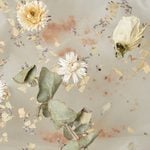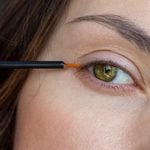This Soap Brand Is Sharing the Healing Power of Inuit Tradition
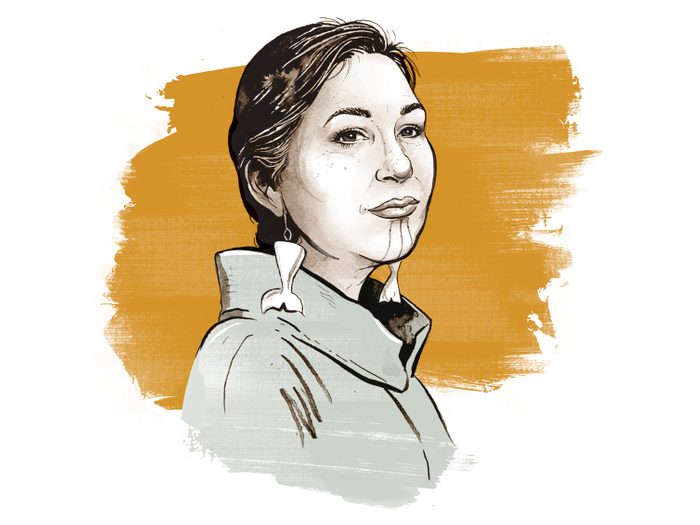
“There’s nobody in the world who does what I do," says Bernice Clarke, the co-founder of Iqaluit-based wellness company Uasau Soap.
This story is part of Best Health’s Preservation series, which spotlights wellness businesses and practices rooted in culture, community and history.
Bernice and Justin Clarke make body care products that heal.
With their Iqaluit-based company Uasau Soaps, the couple crafts body products like soaps, oils, creams using Inuit traditions and native-to-Nunavut ingredients, like bowhead whale blubber and bearded seal oil. These methods have been used for generations to reduce symptoms of eczema, a prevalent issue among northern communities, and bring life back to tired, dry skin.
Using and making these soaps doesn’t just offer physical benefits. For Bernice, it is a way of healing herself and the Inuit community.
Bernice’s mother is a residential school survivor. Bernice carries with her the intergenerational trauma and cultural erasure caused by these schools run by the Catholic church and the Canadian government from 1983 to 1996. These atrocities have yet to be reconciled—not even close—but Bernice finds her way through by creating traditionally-inspired wellness products, unearthing knowledge of the land she is connected to and sharing it with her community and her customers.
What started as a way to achieve soft skin took on a whole new life. Her body butters are a balm to deep wounds.
“As Inuit, we are emerging from a dark chapter in our history,” Bernice shares on the company’s website. “We are washing off the shadows and pain of the colonial legacy, reclaiming our traditional wisdom and strength and reconnecting with our ancestors in the modern world. Healing ourselves includes sharing our story and ways of life with you.”
Here, Bernice talks about how Uasau Soap (pronounced ooh-ah-sow) fights back against colonialism and cultural erasure, the healing power of sharing Indigenous knowledge and the magic ingredient that sets her apart from any all other wellness brands.
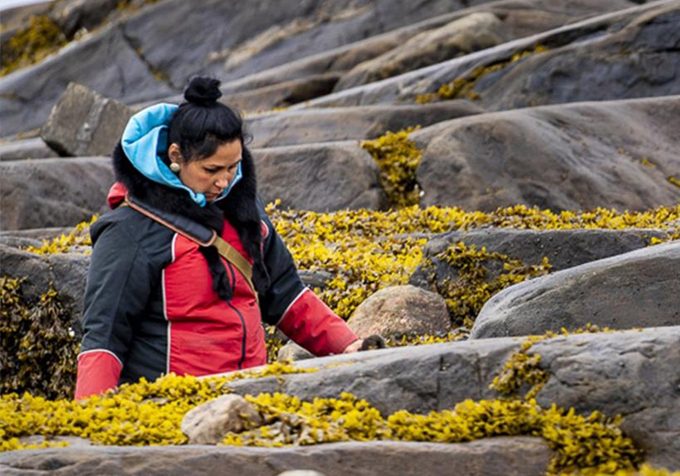
What was the inspiration behind starting Uasau Soap?
I always want soft skin and I live in a dry climate, so I was always trying to find a way to fix this. I wanted to go the more natural route. About 9 years ago I started learning [how to make soap] from friends and from my cousin. I started gifting it as birthday presents, which everyone loved. Everyone started letting me know this product was really good.
(Related: Antibacterial Soap vs. Regular Soap: Which Should You Be Using?)
How did you decide to incorporate bowhead whale blubber into your products?
There is something different about my product. I firmly believe that it’s the bowhead. It is my magic. This is thousands of years old knowledge that was handed to me by my friend. She came to me after her brother said my products helped with his eczema. She said, “I want you to try the bowhead.” My husband and I were not believers. We didn’t think it would work—but it did. The blubber didn’t separate from the oil; the ingredients mixed well. Things changed in that moment, and my business took off in a new way. There’s nobody in the world who does what I do.
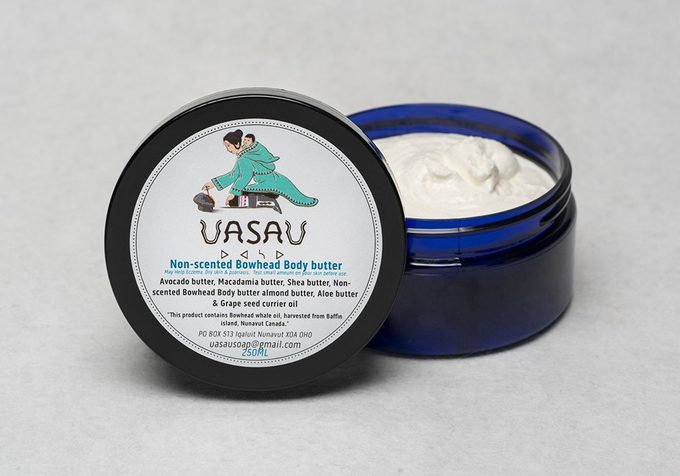
So, Uasau Soap was born from your own desire for soft skin, but it’s evolved into something much more because of your ingredients and methods…
My business fully incorporates my culture, in every form and every way. I am people first, so I ask, “How can I help? Is there an issue you want me to try and figure out?” So the Inuit belief, or the way of the IQ [Inuit Qaujimajatuqangit, traditional knowledge of Inuit passed on through generations], comes from that—we are connected. This takes me from being just a regular bath and body care business to traditional healing. Healing becomes more than skin deep.
The bowhead, for example, has created healing for my people. I have been told stories members of my community that [our soaps] healed them, that I took back the bowhead from [commercial] whalers. That’s so powerful that I can take something that was and bring it back in a new way.
[Editor’s note: Bowhead whaling is illegal for commercial entities. Fisheries and Oceans grants licenses to Inuit communities within set quotas that help conserve the animals. Bernice gets her bowhead from Coral Harbour, Nunavut, one of three Nunavut communities with approval for bowhead hunting. The entire whale is used and respected within these traditional, historical practices that honour Inuit culture.]
The concept of Nanu, your connection to the Earth and to each other, is inherent in all your products. Your clay comes from a river in Iqaluit, your seaweed from Frobisher Bay. How about your latest soap made with lichen?
I have a partnership with my friend named Louisa Tukkiapik [to make “i lichen you” hand and body soap]. It’s a bartering system, me and her. It’s not a signed agreement. After I visited her one day in Kuujjuaq [Nunavik], and we collected lichen together, I asked her if she could send me some in exchange for soap.
All of our ingredients [seaweed, clay, bearded seal oil] are medicine that Inuit have told me about. I have often been pulled aside and asked, “Have you heard of this?” Because as we go down the healing path, we start to share more and more.
(Related: The Best Natural Hand Sanitizers Available in Canada)
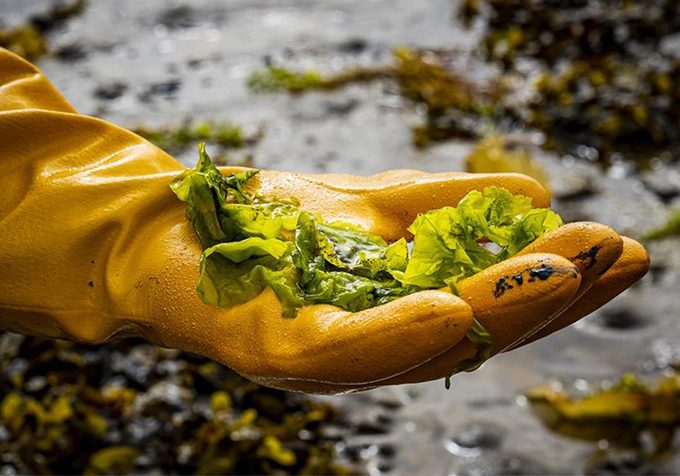
Why is it particularly important for consumers to shop Indigenous-owned brands?
We’re always pushed to the back into the corner. We are not being promoted. It’s very important for me to represent a minority group that is not celebrated. I ask people: How much money do you invest in Indigenous-made products? Can you put a dollar amount on it on a year basis? And how else can you support Indigenous? We are underrepresented and I will advocate for my people.
Uasau Soap makes body products, but it sounds like your business is really about healing.
I have a lot of hurt, and the hurt comes from colonization, from the Catholic Church. I am a survivor. My mother went to a residential school, and I felt the effects of residential schools. I’ve been in therapy for 15, 20 years. I want to be seen—where I came from, and my pain. I want to show people what happens when you heal yourself, because you’re then able to do those extra things that people without trauma are able to do.
My healing comes through my business. I want to heal my pain so I can show others this is how we did it.
If you are a residential school survivor who is experiencing pain or distress, call the National Indian Residential School Crisis Line at 1-866-925-4419. Support is available 24-hours a day, 7 days a week.
This story is part of Best Health’s Preservation series, which spotlights wellness businesses and practices rooted in culture, community and history. Read more from this series here:
Meet Sisters Sage, an Indigenous Wellness Brand Reclaiming Smudging
This Canadian Soap Brand is Rooted in Korean Bathhouse Culture
Sharing Chinese Herbal Soups and Teas, Steeped in Tradition
Get more great stories delivered straight to your inbox by signing up for the Best Health Must-Reads newsletter. Subscribe here.



